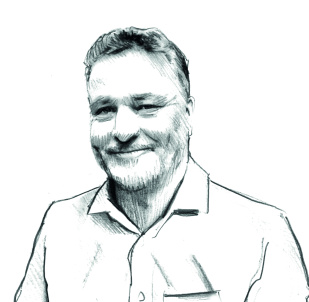
Do your clients ever discuss with you whether they are good with money?
In order to help them answer this question, we first need to define it. What does ‘good with money’ actually mean?
One person could say they are good with money because they have accumulated lots of it – and yet may have regrets because this required them to sacrifice spending time with their children as they grew up.
Someone else might say that they are not good with money because they don’t seem to have much left at the end of the month – and yet this is because they spend their money enjoying time with their friends and loved ones.
The main two sources of wellbeing are having something purposeful in our lives and the quality of our social relationships
In order to measure whether or not we are ‘good’ with money – which we might describe as our ‘financial wellbeing’ – we need to answer two essential questions:
- Does money add to our long-term wellbeing?
- Does money put up any barriers to our long-term wellbeing?
The answer to these questions comes in two parts. Firstly, there are things that are true of all of us.
There has been a huge amount of research into the sources of wellbeing – psychology, neuroscience, academics, religious teachings, art and literature. Answering the question of what makes us happy has been one of the main preoccupations of mankind for millennia. It rather makes you wonder why we haven’t found the answer yet.
Research suggests a person who sees the accumulation of wealth as an objective is likely to be less happy than they would otherwise be
The research tells us the main two sources of wellbeing are: having something purposeful in our lives and the quality of our social relationships. If we use our money to achieve these, surely we could claim to have a good relationship with money.
Money can, however, get in the way of our wellbeing. For example, one study found that people who were offered payment to donate blood were less likely to turn up on the day than those who were not offered payment. The incentive to give blood is to help others, not to get paid, and offering money made the act feel less purposeful.
Then there is the way in which we make decisions. Humans have certain behaviours that have been developed over millennia to keep us safe, but which might not lead to great financial decisions (our aversion to losing something, for example).
Finally, there are our money beliefs. For example, research suggests a person who sees the accumulation of wealth as an objective is likely to be less happy than they would otherwise be.
Some people have had an experience with money that has given them particular beliefs that cause them to make poor financial decisions
The second part of the answer to what makes a good relationship with money is what these sources of wellbeing mean to each of us. For example, anyone will feel better after having a hug from a loved one, but, clearly, we each have different people we care about. Similarly, if wellbeing comes from having purpose, the source of this will be different to each of us.
This is also true of the barriers. Some people have certain behavioural biases in greater measure than others. Others may have had an experience with money that has given them particular beliefs that cause them to make poor financial decisions.
Understanding this is a process I call ‘know thyself’. Insight into an issue helps us to make better decisions – and the starting point is to gain understanding of our individual relationship with money. And, in the case of financial planning, for the planner to understand these things about their clients.
Chris Budd is author of The Four Cornerstones of Financial Wellbeing. His new Financial Wellbeing Pulse is a way of measuring the relationship with money and demonstrating the impact of your advice













Good on you for looking at human side of money Chris. Keep up the great work!